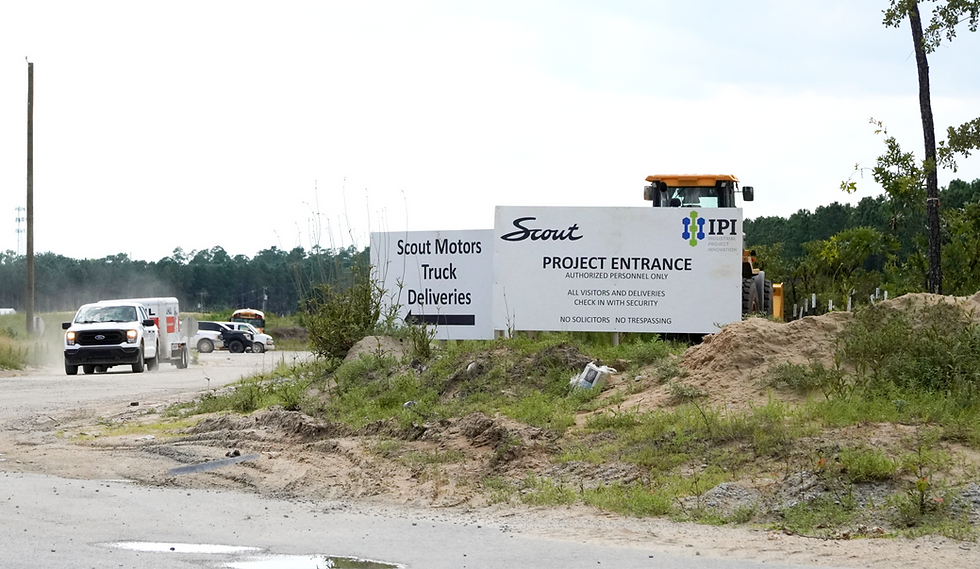The State of Black South Carolina: A Blueprint for Minority-Owned Business Success
- CUBNSC

- Aug 29, 2025
- 4 min read

West Columbia, SC – August 28, 2025 — The South Carolina Legislative Black Caucus (SCLBC), under the leadership of Chair Representative Annie E. McDaniel, convened a powerful gathering at Chayz Lounge, a thriving Black woman–owned business in West Columbia. The evening, themed “The State of Black South Carolina: Economic Development & Outlook for Minority-Owned Businesses,” brought together lawmakers, business leaders, and community advocates to chart new strategies for economic sustainability and growth across the state.
A Historic Charge: Hon. James “Jim” Felder

The event opened with reflections from James Felder, author, historian, and civil rights pioneer. Felder recounted his tenure as one of the first African Americans elected to the South Carolina legislature since Reconstruction. He spoke on the critical reforms that paved the way for Black political participation, including the elimination of at-large election systems and the creation of single-member districts. Felder charged attendees with continuing the fight for representation and reminded them that expanding political power is essential to sustaining economic progress .
Building Infrastructure: Rep. Wendell Jones

Next, Representative Wendell Jones emphasized the concept of economic infrastructure as the backbone of community survival. Drawing on his background as a pastor, entrepreneur, and leadership strategist, Jones identified five pillars necessary for sustainable communities:
Physical infrastructure (land, housing, spaces we occupy)
Economic infrastructure (business ownership and wealth creation)
Social infrastructure (churches, schools, networks)
Resilience and sustainability (our ability to adapt in crises)
Governance and policy (laws and institutions that protect equity)
Jones highlighted a sobering statistic: Black South Carolinians contribute roughly $60 billion annually to the state’s $350 billion GDP, yet those dollars leave Black communities within six hours. By contrast, in Latino communities, money circulates for six days. Jones argued that if even 10–20% of this economic power could be recaptured and reinvested locally, it could generate $134–$270 billion in impact. This, he urged, could solve challenges from food deserts to childcare shortages without depending on outside forces.
The State of Black South Carolina A New Direction: Brenton Brown & Johnny Burch

The keynote came from Brenton Brown, Chief of Staff for the newly renamed South Carolina Commission for Community Advancement and Engagement (SCCAE), formerly the Commission for Minority Affairs. Brown explained that while the agency’s name has changed, its mission remains steadfast: to serve rural and under-resourced communities, particularly minority-owned businesses.

Brown introduced Johnny Burch, Director of Small and Minority Business Contracting and Certification (SMBCC). Together, they outlined sweeping updates to the state’s business certification process:
Three-Tier Certification Model:
Tier One: Micro and emerging businesses ($1,000–$1M revenue, 1–3 employees). Focused on access to capital and set-asides for smaller state contracts.
Tier Two: Established small businesses ($1M–$10M revenue, 11–50 employees). Positioned to handle mid-size state contracts.
Tier Three: Larger firms that must mentor and subcontract with Tier One and Two businesses, ensuring shared growth.
State Procurement Commitment: Every state agency must direct at least 10% of its budget toward certified minority businesses. Agencies are monitored quarterly to ensure compliance.
Tax Incentives: Companies subcontracting to minority firms are eligible for a 4% state income tax credit (up to $50,000 annually).
Burch stressed accountability: “All you have is your name. If you fail to deliver once, you risk closing your business.” He underscored that certification is not just paperwork—it requires real operational capacity and adherence to professional standards .
A Call to Action: Rep. Courtney S. Waters

Closing remarks included passionate words from Rep. Courtney S. Waters of North Charleston, one of the caucus’s rising stars. Waters urged business owners to embrace certification, mentorship, and advocacy. She underscored that structural change requires not just new policies but active participation from entrepreneurs ready to hold institutions accountable.
Waters argued that “state of Black South Carolina” conversations must not only focus on policy and big ideas but also address the everyday struggles people face at the baseline: paying the light bill, feeding their families, or simply having reliable transportation. She insisted that legislation crafted by the Caucus must be “bulletproof” in ensuring underrepresented demographics are not left out.
She further warned against the political climate that has targeted terms like diversity, equity, and inclusion. While the language may shift, she said, the duty to care for all Black people—socially conservative, trans, poor, and marginalized—remains unchanged. Waters concluded that if Black people are not well, then “nobody is well,” calling for unity and mutual support across differences
A Symbolic Venue: Chayz Lounge

The choice of venue underscored the evening’s message. Chayz Lounge, owned and operated by Chaye Alexander, has been a cultural and business beacon for eight years. As a successful Black woman–owned business, it represents the very resilience, creativity, and sustainability the Caucus seeks to cultivate statewide.

The SCLBC made clear that this is more than policy—it is a movement. From Felder’s reminder of political struggle, to Jones’s urgent call for economic self-sufficiency, to Brown and Burch’s rollout of a tiered certification model, the night represented a turning point for Black business advocacy in South Carolina.
The call was unmistakable: Black dollars, Black businesses, and Black political power must be leveraged together to ensure a thriving future.



Comments